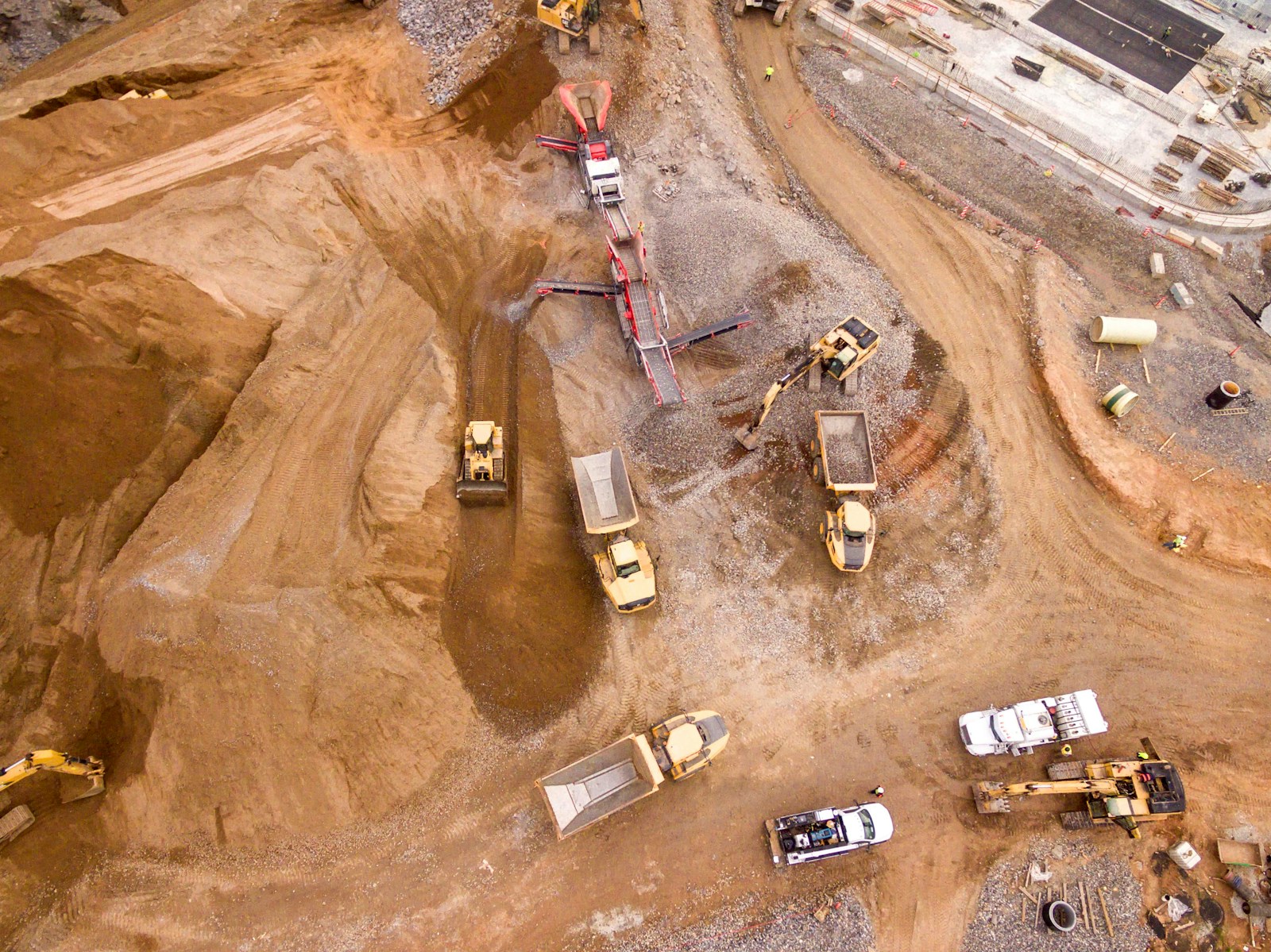Construction trucks are the powerhouses of the construction industry, driving progress across job sites of all sizes. From transporting heavy materials to scaling rough terrain, common construction vehicles handle the most demanding tasks with ease. But have you ever stopped to think about how these machines evolved to become such an invaluable part of industrial projects?
This blog takes you on a comprehensive ride through the history, types, and future of construction trucks. Whether you’re a property developer or a real estate developer managing large-scale projects, understanding the role of construction vehicles can help you optimize your operations and pave the way for success.
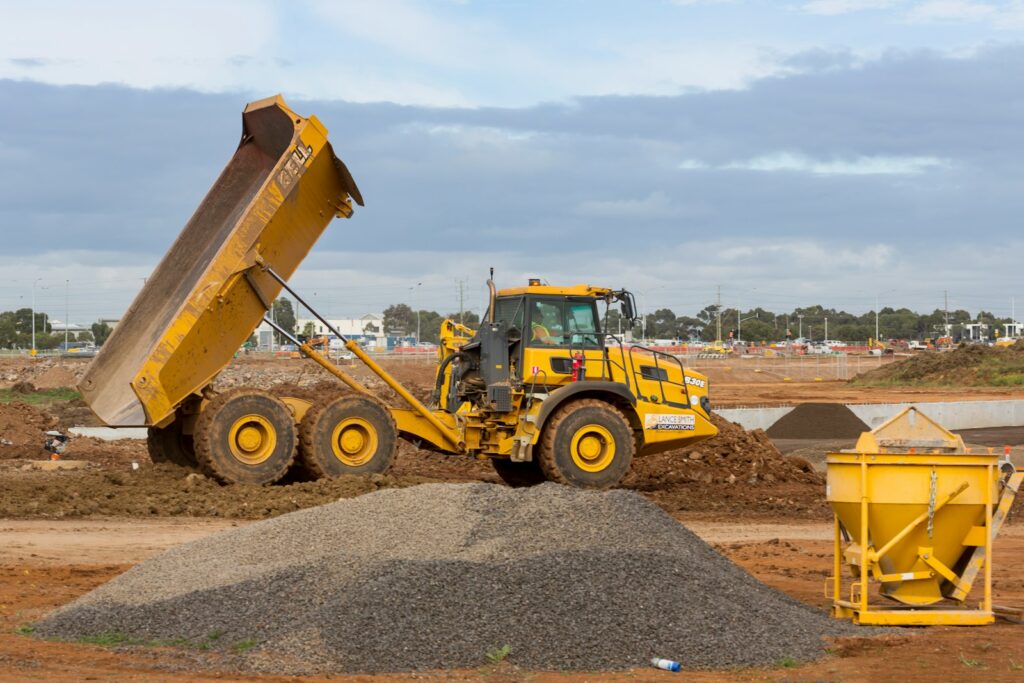
Introduction to Construction Vehicles
Definition and Importance
Construction vehicles are specialized machines designed to perform specific tasks on construction sites, such as excavation, material handling, and transportation. These vehicles are essential for the construction industry, enabling the efficient and safe completion of various construction projects. From bulldozers to cranes, construction vehicles come in different shapes, sizes, and types, each with unique features and capabilities tailored to specific tasks.
The importance of construction vehicles cannot be overstated. They are the backbone of the construction industry, allowing construction companies to complete projects on time and within budget. These machines help increase productivity by performing tasks that would be impossible or highly time-consuming with manual labor alone. For instance, heavy-duty dump trucks can transport large volumes of loose material, such as dirt and gravel, across a construction site quickly and efficiently. This not only speeds up the construction process but also reduces labor costs and improves site safety by minimizing the need for manual handling of heavy loads.
Moreover, construction vehicles enable the transportation of materials over long distances, making them indispensable for large-scale projects. Whether it’s moving earth for a new road or lifting steel beams for a skyscraper, these vehicles ensure that construction tasks are completed efficiently and safely. In essence, construction vehicles are crucial for the successful execution of construction projects, providing the power and precision needed to tackle the most demanding tasks.
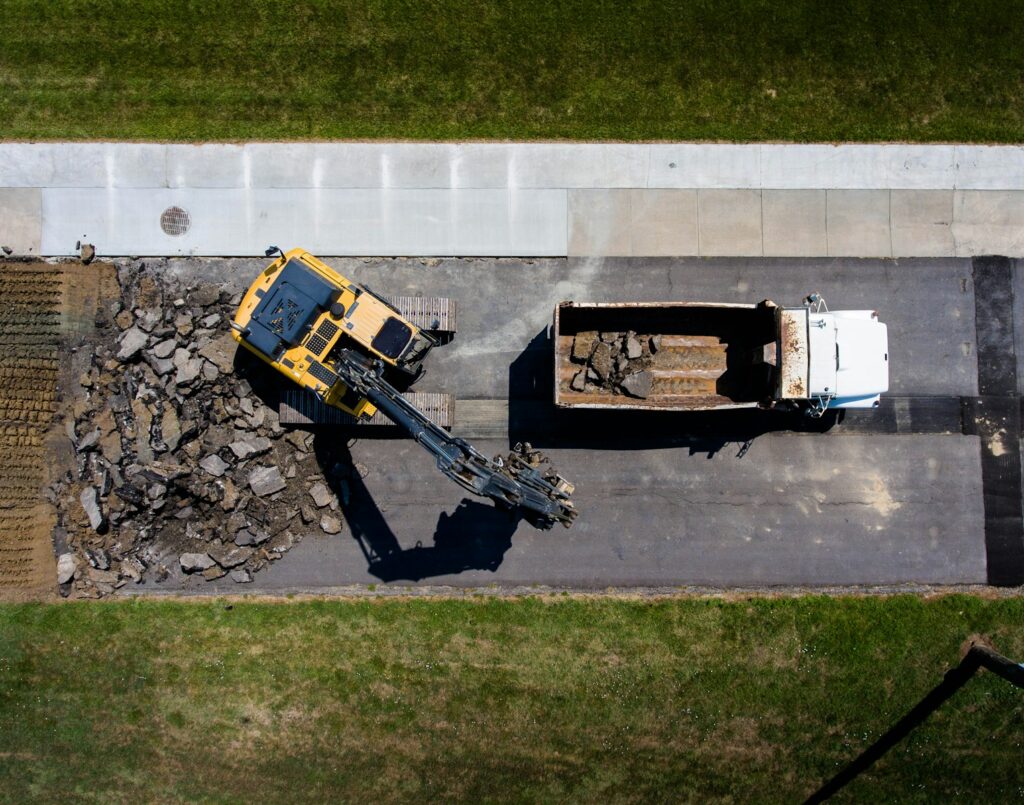
How Construction Trucks Revolutionized the Industry
Early Days of Construction Vehicles
The need for heavy-duty tools to move dirt, rocks, and other materials can be traced back to ancient times. Early construction relied on manual labor or basic tools like sledges and carts carried by animals. Yet, as industrialization gained traction in the 19th century, heavy machinery emerged. Steam-powered tractors were the first precursors to modern construction vehicles, setting the stage for the innovation we see today. The dump truck plays a crucial role in transporting large volumes of materials like dirt and gravel for construction projects.
Modern Advancements in Heavy Duty Dump Trucks
Fast forward to the 20th century, and technological advancements completely reshaped the construction industry. Diesel-powered engines, hydraulics, and articulated joints enhanced maneuverability and functionality, allowing trucks to handle larger loads and operate on uneven surfaces. Today, these machines aren’t just tools for moving dirt—they’re engineered solutions optimized for everything from digging trenches to compacting soil.
Types of Construction Trucks and Their Distinct Applications
Different construction tasks demand different types of vehicles. Here are some of the most common construction trucks and their uses directly at the job site:
1. Dump Trucks
Key Feature: High-capacity beds for transporting large volumes of loose materials like dirt and gravel.
Whether you’re working on road building or creating retaining walls, dump trucks are essential for hauling heavy loads short distances efficiently. For more demanding needs, heavy-duty dump trucks are designed to handle industrial-scale projects like mining operations.
2. Excavators
Key Feature: Boom arms equipped with digging buckets for earthmoving tasks.
From digging trenches to removing rock formations, excavators play a vital role on construction sites. Dragline excavators are often used for large-scale earthworks, while compact machines handle jobs in tight spaces.
3. Wheel Loaders
Key Feature: Front loaders designed for moving heavy objects or other materials like dirt and debris.
Perfect for distribution centers and construction sites, wheel loaders offer enhanced maneuverability and the ability to lift loads seamlessly.
4. Mixer Trucks
Key Feature: Rotating cylinders designed to transport concrete while mixing it on the move.
Mixer trucks are indispensable for construction areas that need large amounts of concrete for projects like retaining walls or foundations.
5. Skid Steer Loaders
Key Feature: Compact machines with a variety of attachments like buckets and snow removal tools.
Designed for versatility, skid steer loaders are ideal for tight spaces and smaller job sites, from plowing through snow to digging foundations.
6. Telescopic Handlers
Key Feature: Adjustable booms or lift arms for accessing elevated areas.
Commonly used in loading docks or aerial lift tasks, these versatile vehicles streamline operations where height is a challenge.
7. Articulated Haulers
Key Feature: Articulated joints for maximum flexibility and transport of heavy loads on rough terrain.
Articulated haulers are a go-to for construction sites dealing with uneven surfaces or where multiple materials need to be moved efficiently. These vehicles play crucial roles in transporting materials and performing tasks essential to the efficiency and success of operations directly at the job site.
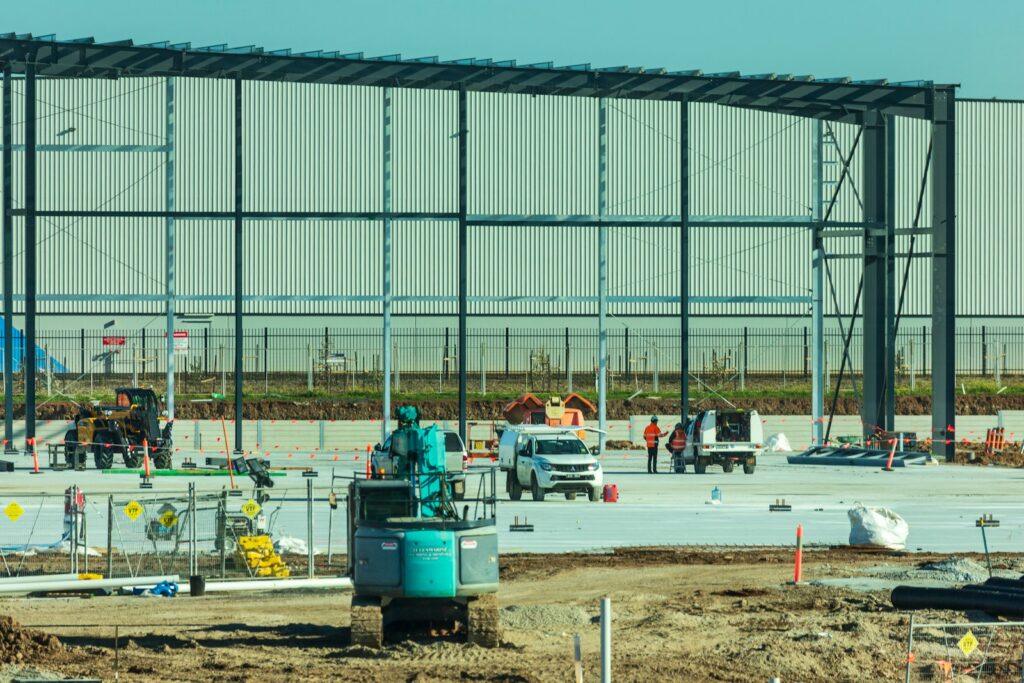
Safety and Environmental Considerations
Operator Safety and Site Safety
Operator safety is a top priority when it comes to construction vehicles. These powerful machines require skilled operators who are properly trained and equipped to handle them safely and efficiently. Construction companies must invest in comprehensive training programs to ensure that operators understand how to use the vehicles correctly and are aware of potential hazards. Regular maintenance and inspections of construction vehicles are also essential to prevent mechanical failures that could lead to accidents.
Site safety is equally important, as construction vehicles can pose risks to other workers and pedestrians on the site. Construction companies must implement robust safety measures, such as clearly marked warning signs, barriers, and traffic control systems, to manage the movement of vehicles and prevent accidents. Ensuring that all workers are aware of the safety protocols and adhere to them is crucial for maintaining a safe working environment.
Environmental Impact of Construction Vehicles
Construction vehicles can have a significant environmental impact, particularly in terms of noise pollution and emissions. The construction industry is increasingly aware of the need to minimize these impacts and adopt more sustainable practices. One way to achieve this is by using cleaner fuels, such as biodiesel or electric power, which produce fewer emissions compared to traditional diesel engines. Reducing idling time and implementing noise reduction measures, such as sound barriers and quieter machinery, can also help mitigate the environmental impact.
Additionally, construction companies can adopt sustainable practices such as recycling and reusing materials, reducing waste, and using environmentally friendly construction methods. For example, using recycled concrete and steel can reduce the demand for new raw materials and decrease the overall environmental footprint of a project. By prioritizing sustainability, construction companies can not only reduce their environmental impact but also enhance their reputation and appeal to environmentally conscious clients.
In conclusion, construction vehicles are essential for the construction industry, but they also pose safety and environmental risks. Construction companies must prioritize operator safety and site safety while taking steps to minimize the environmental impact of their vehicles. By adopting sustainable practices and implementing robust safety measures, construction companies can reduce the risks associated with construction vehicles and promote a safer and more environmentally friendly construction process.

South Coast Improvement Company and Their Expertise
South Coast Improvement Company specializes in utilizing construction vehicles to bring projects to life. By pairing their extensive experience with cutting-edge equipment, they provide unmatched services across the construction industry.
Tailored Solutions for Developers
From pre-construction planning to design-build services, South Coast Improvement takes a customized approach for every project. Their heavy-duty vehicles and skilled team ensure every construction task is managed with professionalism and precision, whether it’s digging large trenches or managing distribution centers.
Why Partner with South Coast Improvement?
- Preparedness: Every project begins with an in-depth understanding of client needs.
- Efficiency: Their approach minimizes delays, ensuring smooth workflows on job sites of all sizes.
- Accountability: Fixed accountability for both design and execution reduces client risk.
With an impressive portfolio of completed projects, South Coast Improvement stands out as a trusted partner for property developers aiming to build smarter, faster, and better.
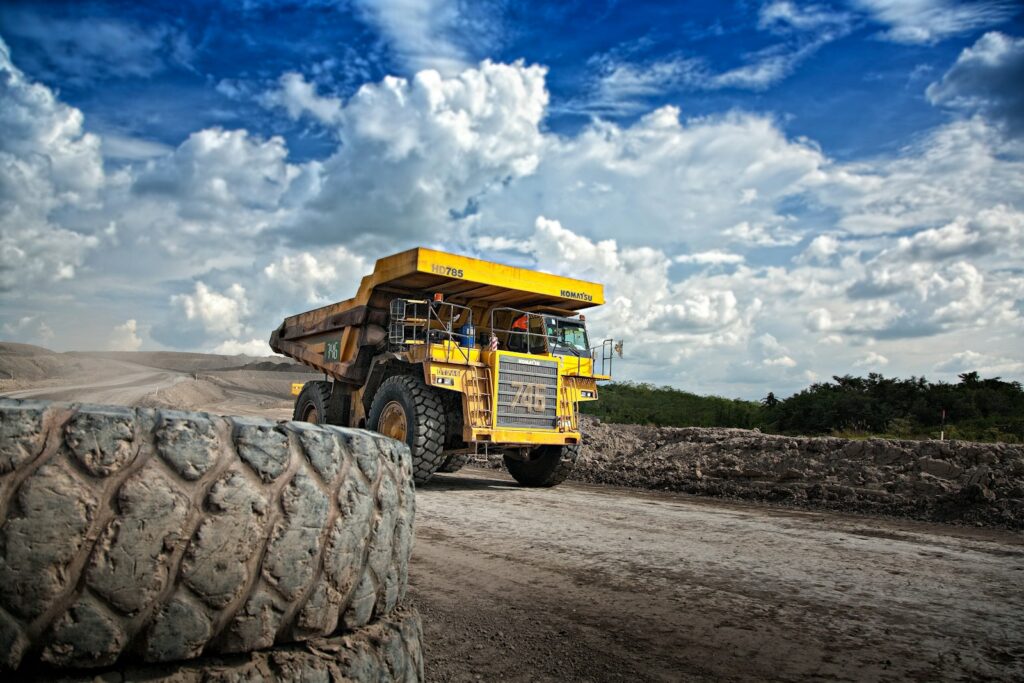
What’s Next for Construction Trucks?
Emerging Technologies
Construction vehicles are evolving with advancements in AI and automation. Autonomous dump trucks and excavators are being tested on job sites, offering the potential to significantly boost efficiency while reducing labor costs.
Advances in eco-friendly solutions, such as electric-powered vehicles, are also gaining traction, addressing sustainability concerns in the industry.
Smarter Construction Sites with IoT
The integration of the Internet of Things (IoT) allows vehicles to communicate real-time performance data. For instance, wheel loaders equipped with IoT sensors can monitor fuel usage, providing insights to help minimize waste and costs.
Redefining Productivity
With enhanced capabilities for multitasking, future trucks might be capable of completing multiple tasks within a single machine—for example, combining earthmoving tasks with concrete mixing.
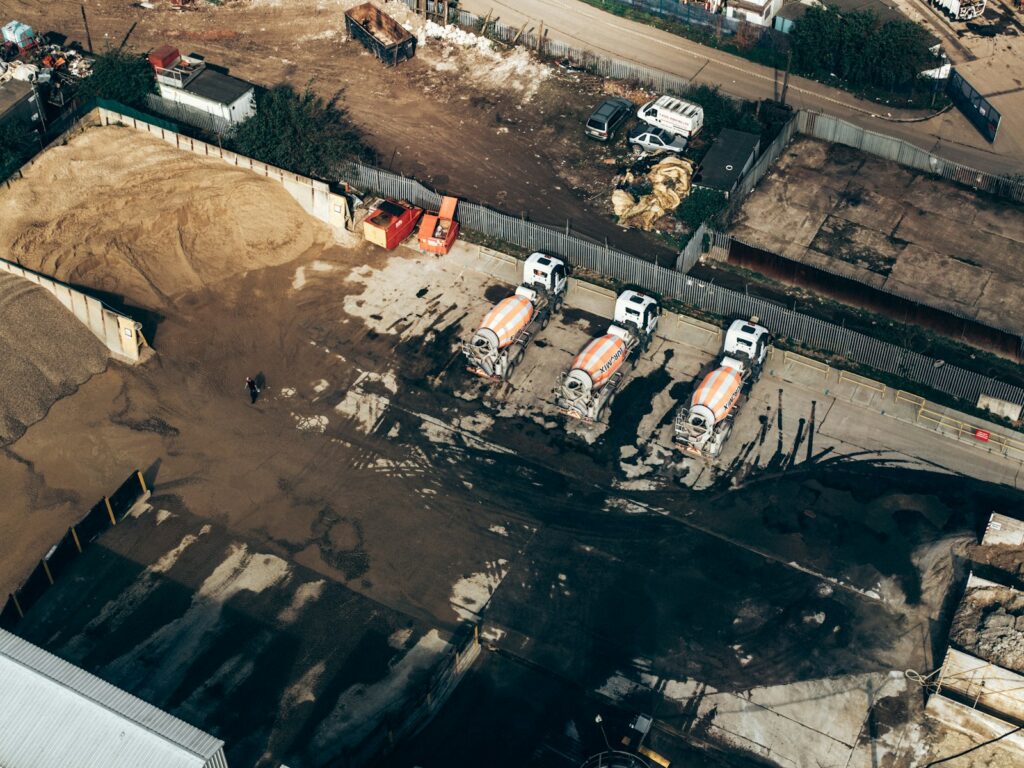
Construction Vehicles Drive the Future
Construction trucks have come a long way since their invention, becoming indispensable to the industry. Whether building skyscrapers or working on large-scale road building projects, their impact cannot be understated.
For real estate and property developers, choosing the right construction vehicles can mean the difference between a delayed project and a successful one. South Coast Improvement Company’s deep expertise and tailored services are the ideal solution to help you meet today’s challenges.
Resources
Here are some valuable resources to help you learn more about construction vehicles and their role in modern projects:
- Construction Equipment Guide – A comprehensive resource for news and insights on construction machinery and equipment trends.
- Society of Automotive Engineers (SAE) – Stay up to date on advancements in vehicle standards and technologies within the construction industry.
- South Coast Improvement Company – Explore expert services and tailored solutions for real estate and property development projects.
- Construction Machinery Association – Access industry reports and innovations related to construction vehicles worldwide.
- OSHA’s Construction Resources – Learn about safety standards and guidelines for operating construction equipment on the job site.
- Heavy Equipment Forums – Join a community of professionals discussing the latest in construction machinery, maintenance tips, and industry trends.
- Equipment World – Explore news, reviews, and data about construction equipment and technology advancements.
- Global Construction Review – Stay informed on international industry updates, technological innovations, and market trends in construction.
View Our Work
Brandywine Haverford Estates by Monarch
South Coast Improvement Company has completed interior renovations at the senior living community, Brandywine Haverford Estates by Monarch. We were entrusted with enhancing the facilities, and the results speak for themselves. The team brought diligence and...
Nouveau Marc by Barclay House
South Coast Improvement Company proudly partnering with QSL Management delivered a comprehensive renovation at Nouveau Marc by Barclay House, a premier senior living community. This project focused on revitalizing key resident areas with an emphasis on safety,...

